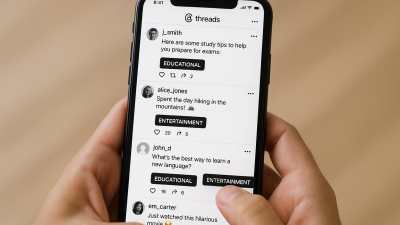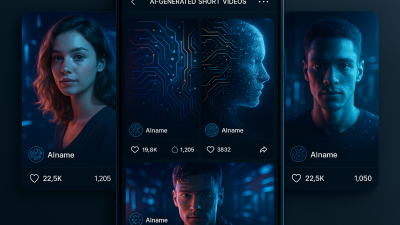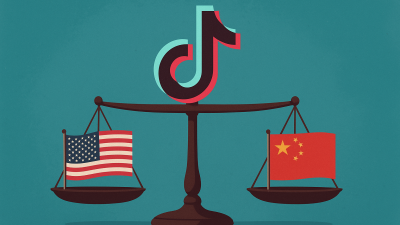Spotify Refutes Claims of Altering Its Terms for Artists: Understanding the Controversy
Spotify has once again found itself at the center of discussions around artist rights, platform transparency, and digital music economics. Recent allegations suggested that the music streaming giant had changed its terms for artists, sparking concern among musicians, independent labels, and industry observers. However, Spotify has publicly refuted these claims, asserting that its contractual terms for artists remain unchanged.
This controversy is significant because the relationship between streaming platforms and artists is a delicate balance of revenue, visibility, and creative control. For many independent musicians, Spotify represents both an opportunity and a challenge: a chance to reach millions globally, but also a dependence on a platform whose policies directly affect livelihoods. When rumors of altered terms spread, even if inaccurate, they can cause anxiety and mistrust within the music community.
Beyond the industry, this situation reflects a broader societal challenge: how large digital platforms communicate with users and creators, and how misinformation or misunderstandings can ripple through communities. Platforms like Spotify wield tremendous influence over how art is distributed and monetized, making transparency and trust critical not just for business, but for the cultural ecosystem as a whole.
We explore the allegations, Spotify’s response, the potential impacts on artists, and the broader implications for digital music economics and creator-platform relations.
Spotify’s Role in the Music Industry
Since its launch in 2008, Spotify has transformed how music is consumed. The platform boasts over 600 million active users worldwide, with more than 100 million paying subscribers. This scale gives Spotify enormous influence over music discovery, promotion, and revenue generation for artists.
Spotify operates on a streaming revenue model, where artists and rights holders are paid based on a share of subscription revenue and ad income. While the platform has democratized access to music, it has also faced scrutiny over payouts, transparency, and contracts. In 2023, for instance, debates around streaming royalties and equitable compensation highlighted ongoing tensions between creators and tech platforms.
In this context, allegations that Spotify altered artist terms—if true—would have had significant implications. Musicians rely on clear, consistent contracts to plan their careers, manage finances, and make strategic decisions about distribution. Even a perceived change in policy can trigger industry-wide anxiety, as artists fear potential reductions in revenue or control over their work.
Spotify’s quick refutation emphasizes the platform’s awareness of its reputational and operational responsibilities. By addressing the claims promptly, the company seeks to maintain trust, reassure artists, and demonstrate its commitment to transparency.
The Allegations and Spotify’s Response
The controversy began when several social media posts and blogs suggested that Spotify had modified its contractual terms for artists, potentially impacting royalties and distribution rights. These posts gained traction quickly, fueled by online speculation and concern among independent musicians.
Spotify responded with a formal statement denying any changes to its terms for artists. The company clarified that:
-
No contractual terms or royalty structures had been altered recently.
-
Artists’ existing agreements remain fully in force.
-
Transparency and fairness remain core principles of its creator policies.
Industry analysts note that such rumors often arise from misunderstandings about platform updates, dashboard changes, or communication missteps, rather than actual contract modifications. For example, updates to Spotify for Artists dashboards or reporting tools might appear as changes to agreements but are in fact technical or UX improvements.
Spotify’s swift clarification highlights the importance of clear communication between platforms and creators. In an ecosystem where millions of creators rely on a single platform for income, even minor misunderstandings can escalate quickly. Addressing misinformation promptly is critical not only for brand reputation, but also for maintaining trust within the creative community.
Implications for Artists and the Music Ecosystem
Even though the allegations were false, the incident underscores vulnerabilities in the artist-platform relationship:
-
Trust and Transparency: Artists need confidence in the stability of contracts and payment structures. Rumors of changes—even if incorrect—can undermine trust.
-
Dependence on Digital Platforms: Many musicians rely heavily on Spotify for exposure and revenue. Any perception of instability can impact career planning and creative output.
-
Community Reactions: Social media can amplify misinformation, causing unnecessary panic and debates within the music industry.
This event also highlights the broader conversation about digital music economics. Artists are increasingly seeking clarity on how royalties are calculated, how platform algorithms impact exposure, and how emerging tools like NFTs, AI, and direct fan subscriptions may complement streaming revenues.
While Spotify maintains that its terms remain consistent, the controversy serves as a reminder: artists and platforms must engage proactively. Platforms should communicate updates clearly, and creators must stay informed about terms, tools, and metrics that affect their careers.
Broader Industry Context and Lessons Learned
Spotify’s situation is not unique. The streaming ecosystem is dynamic, with frequent updates, technical changes, and policy refinements. Misunderstandings often arise when:
-
Interface updates appear as contractual changes.
-
Industry blogs interpret technical updates as policy shifts.
-
Viral social media posts spread unverified claims.
For creators, the lesson is clear: verify information from official sources before reacting. Platforms like Spotify provide dedicated communication channels, newsletters, and dashboards specifically to keep artists informed.
For the industry, this episode reinforces the need for robust communication and education initiatives. Transparency in terms, royalties, and reporting mechanisms helps mitigate misinformation and strengthens creator trust.
Analysts also note that as platforms diversify revenue streams—through podcasts, video, merchandise, and live experiences—educating creators about all revenue components becomes increasingly important. Miscommunication or lack of clarity can quickly escalate into reputational challenges.
Human Perspective: Trust in the Digital Music Era
At its core, the controversy is about trust. Creators invest years of effort, skill, and emotion into their music. They depend on platforms to deliver fair compensation and reliable exposure. When rumors of policy changes surface, even temporarily, the emotional and financial stakes are high.
Artists’ concerns are valid, reflecting the power imbalance in digital ecosystems. Large platforms dominate distribution, and creators often have limited negotiation leverage. This makes transparency, accountability, and clear communication crucial for healthy platform-creator relationships.
From a societal perspective, incidents like this also highlight how misinformation can ripple through creative communities, impacting decisions, mental health, and collaboration. Platforms, creators, and audiences alike benefit from fostering trust-based ecosystems, where information is verified and communication is proactive.
Spotify’s refutation of claims regarding altered artist terms demonstrates the critical importance of transparency, trust, and communication in the digital music ecosystem. While the allegations were false, the rapid spread of misinformation underscores the challenges faced by creators and platforms alike.
For artists, the incident reinforces the need to stay informed, verify official communications, and engage with platform updates thoughtfully. For Spotify and other streaming services, it highlights the necessity of clear, proactive, and accessible communication channels to prevent misunderstanding and maintain creator confidence.
Ultimately, the controversy serves as a reminder that the digital music era is not just about technology or revenue—it’s about relationships, trust, and the human impact of platform decisions on creators’ livelihoods and well-being. By fostering clarity and openness, platforms like Spotify can continue to empower artists while building resilient, trustworthy ecosystems for the future.
FAQs
1. Did Spotify actually change its terms for artists?
No, Spotify has officially stated that no changes to artist contracts or royalty structures have occurred.
2. Why did these rumors start?
Misunderstandings around dashboard updates, reporting tools, or social media speculation often lead to such rumors.
3. How can artists verify changes to contracts or royalties?
Always check official Spotify communications, the Spotify for Artists portal, or contact platform support.
4. Does this affect independent musicians differently than signed artists?
No, Spotify clarified that all artist contracts remain unchanged, regardless of label affiliation.
5. How can artists stay informed about platform updates?
Subscribe to official newsletters, check the Spotify for Artists dashboard, and follow verified announcements.
6. Can misinformation impact artists financially?
Yes, rumors can influence decision-making, planning, and trust, which indirectly affects revenue and exposure.
7. What lessons can other platforms learn from this?
Clear, proactive communication and transparency are essential to prevent misunderstandings and maintain trust.
Stay informed on digital music trends, streaming policies, and artist insights. Subscribe to our newsletter for expert analysis and updates delivered directly to your inbox.
Note: Logos and brand names are the property of their respective owners. This image is for illustrative purposes only and does not imply endorsement by the mentioned companies.



